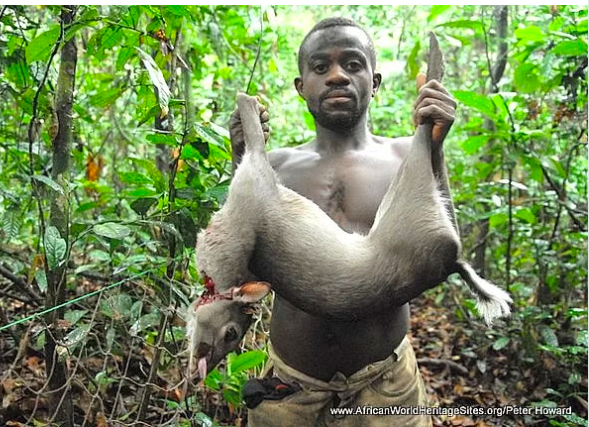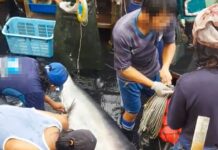By Gabs Mia
Kinshasa, DR Congo: Heads of the Okapi Wildlife Reserve have sent alarm over the loss of more than 400 hectares of its Area as a result of human activity. This fear was expressed during the marking of the World Tropical Forest Day.
The Okapi Wildlife Reserve occupies about one-fifth of the Ituri Forest in the north-east of the Democratic Republic of the Congo. The Congo River basin, of which the reserve and forest, is part of one of the largest drainage systems in Africa.
The destruction of the heritage of this protected area is marked by a strong expansion of agricultural activities in the zones demarcated within the Reserve. The wanton felling of trees to produce charcoal, sawing for planks illegal artisanal and semi-industrial mining which is razing the forest.
“We urge the people behind this deplorable situation to stop their illegal activities, which are jeopardizing the existence of the RFO” said Papy Shamavu, acting site manager of Okapi Wildlife Reserve.

He called for collective protection of the site, which is a UNESCO World Heritage Site. The reserve communications officer, Ephrem Tshiruza however, noted that efforts were being made to deal with the problem.
“The Okapi Wildlife Reserve is working hard with local communities to halt the spread of the loss of forest cover in the Reserve. Several conservation initiatives and support for community involvement is being implemented in the Okapi Wildlife Reserve” explained Ephrem.
In particular, he cited the support for the sustainable management of natural resources around the Reserve, including Local Community Forest Concession initiatives.
“This initiative aims to offer sustainable socio-economic alternatives to people living in and around the Reserve, while reducing human pressure on the RFO’s natural resources” added Ephrem.
Martin Mangala, Program coordinator of Action pour Le Développement Intégré du Paysan (PADIP), which is supervising the local people in Epulu, says that his organization is holding a series of awareness-raising sessions to get the local population involved in protecting the ecosystem.
Okapi Wildlife Reserve contains flora of outstanding diversity and provides refuge to numerous endemic and threatened species, including one-sixth of the existing Okapi population.
The Reserve protects one-fifth of the Ituri forest, a Pleistocene refuge dominated by dense evergreen and humid semi-evergreen forests, combined with swamp forests that grow alongside the waterways, and clearings called locally ‘Edos’ and ‘Inselbergs’.














